
What a shocker! FBI head complains about Apple and Google's encryption practices
Apple and Google do not want the US Government to be able to access your private data, even when search warrants are involved. It's a bold stand they're taking, which has been applauded by privacy advocates and, quite probably, criminals as well. But, guess what? That does not sit well with the authorities. FBI Director James Comey is troubled by the idea that the all-mighty agency that he runs can be stopped dead in its tracks when trying to see your intimate photos, videos and whatnot. Imagine that.
Here's what the fuss is all about. If encryption is turned on, the encryption key, that is needed in order to access the data that is stored on an Android or iOS 8 device, is in the user's control, instead of Google's or Apple's. As such, this allows the companies to be unable to comply with search warrants. It's clever: you can't give what you don't have.

Selligy launches new mobile sales tools to boost productivity
Key to the sales process is communicating with customers and often that means sales people being away from the office. Mobile technology means that there's no excuse for being out of touch though.
CRM specialist Selligy is launching a set of tools that allow sales professionals to manage their deals and update their sales forecasts quickly and accurately from their smartphones. IT uses information from the phone including location and calendar details to deliver relevant information when it's needed.
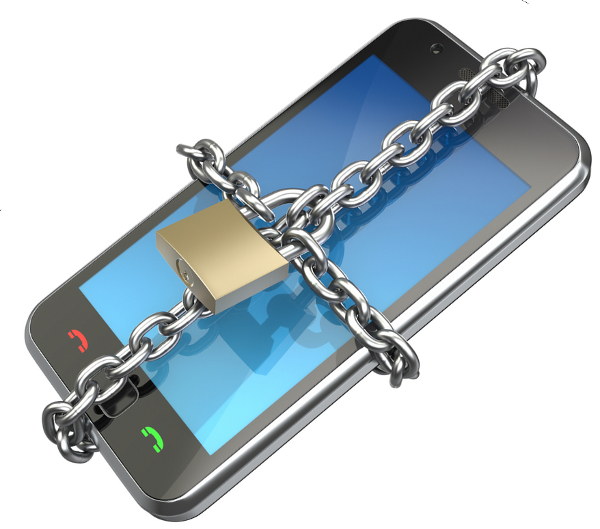
Small businesses lack the security knowledge to protect their mobiles
Whilst smaller businesses are keeping pace with mobile adoption trends they don't always have the security knowledge needed to protect themselves.
This is among the findings of a survey by Kaspersky Lab which asked 3,900 IT professionals worldwide about the challenges encountered by their businesses over the last year.
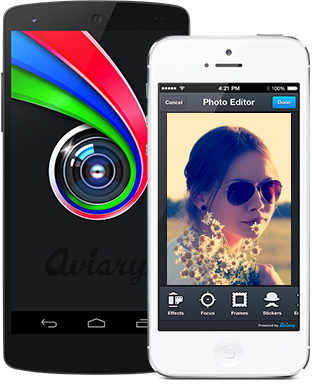
Adobe snaps up cloud image editor Aviary to fast-track SDK development
Seven years after its inception, online image editing service Aviary has been acquired by Adobe. The Photoshop stalwart is no stranger to the cloud, but this latest purchase seems to indicate that the company is looking to expand further in this arena. Pay a visit to the Aviary website and the Adobe branding is already in place -- there's also a new entry on the Aviary company timeline that has been updated to reflect the acquisition. The Adobe-branded Aviary website makes clear the thinking behind the move: "accelerating delivery of mobile apps that integrate with Adobe Creative Cloud".
It seems that the main reason for Adobe's interest in Aviary is the fact that the ornithologically-named firm has developed a number of mobile SDKs. Aviary is already a popular tool, and Adobe is understandably keen to monetize the popularity of cloud apps and mobile services: Aviary is a ready-made package that encompasses both of these ideas perfectly. An announcement by Adobe explains that "the acquisition accelerates Adobe's strategy to make Creative Cloud a vibrant platform for third-party apps, through a new Creative SDK".

Intelligent sales productivity platform from Base adds new features
Many businesses rely on CRM tools to store sales data, but the increased use of mobile devices has led to new demands for information to be available anywhere at any time.
Now Base which describes itself as an intelligent sales productivity platform, has added a range of new features to boost team productivity and make data available in real time.

Mobile security budgets aren't keeping pace with demand for devices
Although mobile devices are becoming essential in many workplaces security budgets are failing to reflect the growing numbers of devices that need protection.
This is among the findings of a new report by electronics and systems specialist Raytheon. According to the research around one-third of employees use mobile devices exclusively to do their work and this is expected to increase to an average of 47 percent of employees in the next year.

Mobile Internet use soars, but tablets suffer at the hands of larger smartphones
How do you view BetaNews and other websites? While desktop browsers are still the most popular way of accessing the web for most of the world, mobile internet use is rapidly gaining in popularity.
According to independent website analytics company StatCounter, the use of mobile devices to access the internet has increased by 67 percent worldwide over the past 12 months, from 17.1 percent to 28.5 percent (as you might expect, with its tech-savvy audience, BetaNews has a higher portion of mobile users, but more on that later).
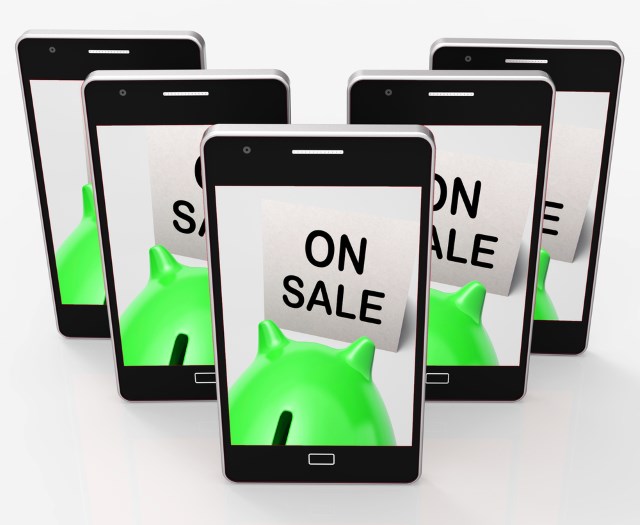
Cheap handsets in India and China fuel huge global surge in smartphone shipments
New figures show that global smartphone shipments for 2014 are set to be 19 percent higher than the previous year. Juniper Research reports that handset shipments are forecast to jump from 985 million in 2013 to 1.2 billion this year.
Smartphone popularity continues to rise, and this has been driven -- at least in part -- by the appearance of handsets with bargain basement prices. While the likes of Apple push premium-priced smartphones, emerging markets are lapping up handsets priced at $150 and under.
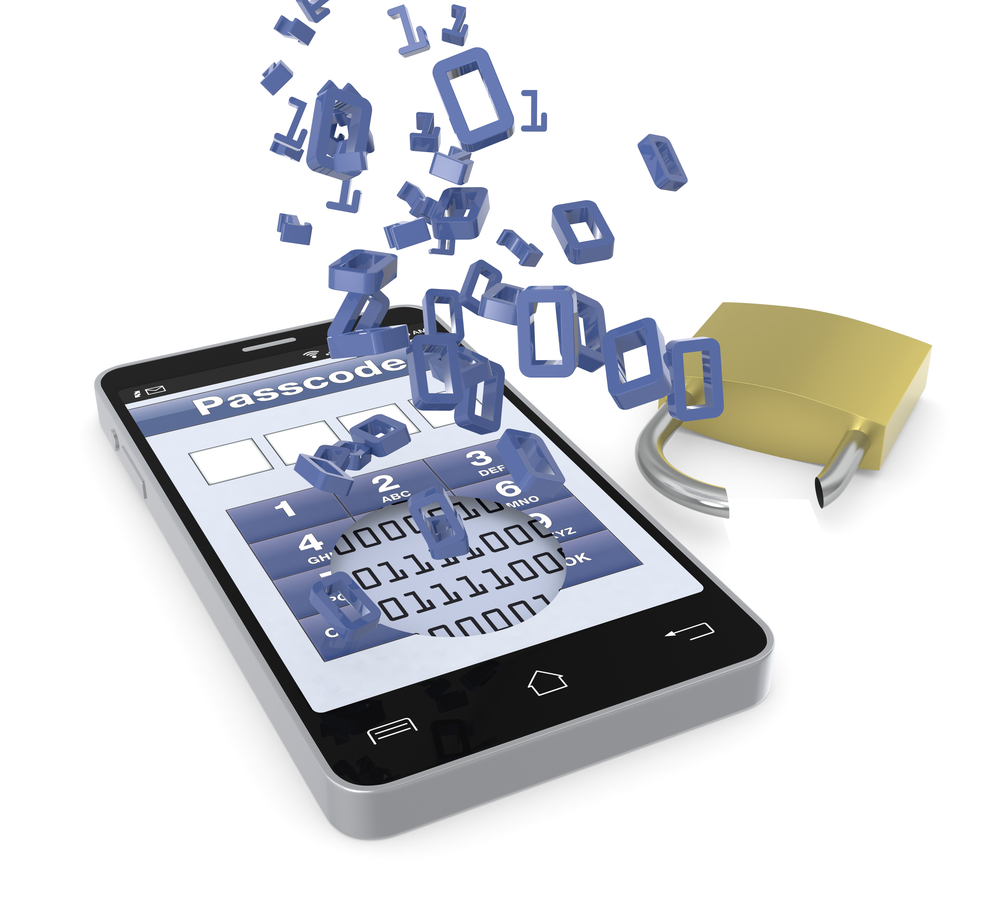
Over three-quarters of mobile apps will fail security tests by 2015
New research by analysts at Gartner shows that more than 75 percent of mobile apps are set to fail basic security tests by 2015.
This is a particular worry for enterprises as employees may download software from app stores. These apps offer minimal or no security assurances but are able to access sensitive business data and violate company security policy.
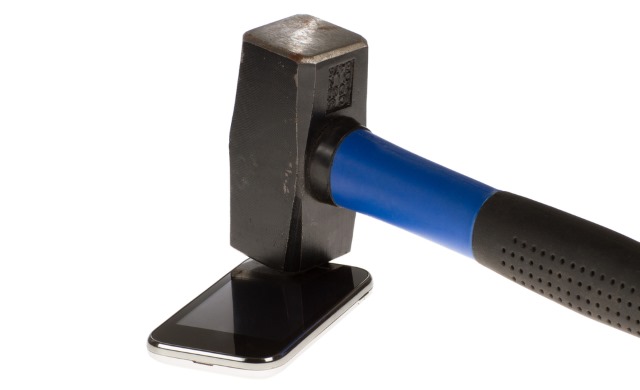
T-Mobile brings free Wi-Fi calling to its customers, and it's terrible news
At its seventh Uncarrier event in San Francisco, T-Mobile unveiled plans to clutter up the internet for everyone -- T-Mobile customers and non-T-Mobile customers alike. On the face of it, things sound great. The T-Mobile Personal CellSpot offers free Wi-Fi calling and "fast data". The Cellspot is essentially a router which can be yours for a deposit of $25 but the difference is that it has been tweaked so that it prioritizes HD Wi-Fi calls over other traffic on the network. If you live in an area with poor mobile reception -- which can be just as frustrating as having to put up with a terrible internet connection -- this might sound like wonderful news, but when you look at the bigger picture, it is really such good news?
Let's try to ignore the fact that in order to get hold of one of the Personal CellSpots, you need to stump up a refundable deposit -- whoever heard of renting their router? -- and ask the first question: who actually needs "HD" phone calls? Pictures are HD, and there really have been very few complaints about the overall quality of voice calls on mobiles over the years. This is just gimmicky and inefficient. T-Mobile CMO Mike Sievert indicated that customers would enjoy the portability of the device -- easy to take on the road and set up anywhere. But how many people take a router away with them? Is this really going to become the norm?

Mobile carriers are trying to control your texting
Who owns your telephone number? According to Section 251(b) of the Communications Act of 1934, you own your number and can move it to the carrier of your choice. But who owns your texting phone number? It’s the same number, just used for a different purpose. The law says nothing about texting so the major wireless carriers (AT&T, Sprint, T-Mobile, and Verizon) are claiming that number is theirs, not yours, even if you are the one paying a little extra for unlimited texting. And the way they see it, unlimited is clearly limited, with carriers and texting services not offered by the Big Four expected soon to pay cash to reach you.
Those who’ll pay to text you include mobile carriers not in the Big Four led by the largest independent, US Cellular, as well as so-called over-the-top texting service providers that presently offer free texting services. These companies include pinger.com, textplus.com, textnow.com, textme.com, and heywire.com. Service continues for now but the incumbents are threatening to shut it down any day. T-Mobile started trying to impose fees several weeks ago and Sprint, I’m told, will start trying to charge next week.
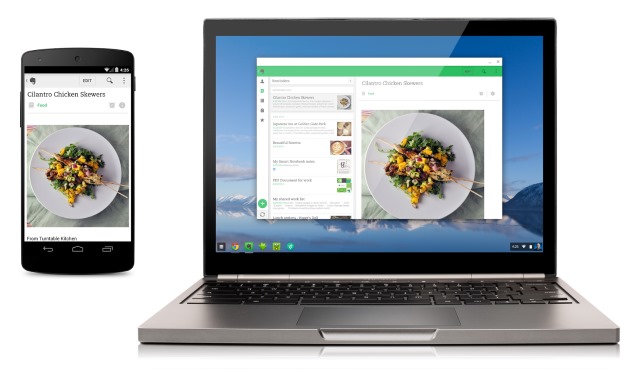
Android apps break out of the small screen and jump to Chromebooks
A lot of Google services have transitioned to gain the title of "apps", and the same is true of a large number of extensions for the Chrome browser. These online tools are essentially cross-platforms apps that work identically Now Google is taking another step to break out of the confines of making apps available to a single platform. Android apps are, quite rightly, associated with smartphones and tablets, but now a small number of these mobile apps are finding their way onto Chromebook.
The (usually) cheap and cheerful Windows laptop/Mac Book alternative (did someone say netbook?) can now start to benefit from a handful of well-known titles from Android devices. It is very early days but as of today there are four Android apps available to Chromebook owners -- Duolingo, Evernote, Sight Words, and Vine -- but we can expect to see this list expand over time. The quartet of crossover apps were introduced today by Ken Mixter and Josh Woodward. A short blog posts penned by the pair explains that the Chromebook support comes thanks to the App Runtime for Chrome (Beta) project.

The long road from communications service provider to digital service provider
The last two years have arguably witnessed the greatest advances in the mobile and telecoms space since the first mobile phone call was actually made on the April 3, 1973. With the emergence of 3G and 4G/LTE, the mobile space has changed beyond all recognition, as have the ways that consumers use mobile phones.
According to Vodacom's quarterly update for the period ending June 30 2014: The average monthly data usage on smartphones increased 44.5 per cent to 312 MB per device, and usage on tablets increased 43 per cent to 848 MB per device. While these figures are unique to the Vodacom group, they are broadly speaking, representative of wider global trends.
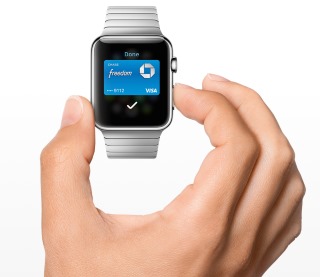
Apple revolutionizes mobile payments with Apple Pay
The focus of Apple's event today was the iPhone 6, iPhone 6 Plus, and the Apple Watch, but one of the more understated stars of the show was Apple Pay. This is not hardware, but a new mobile payment platform which Apple is billing as "your wallet, without the wallet". It works in conjunction with the new handsets to provide a new means of contactless payment and it supports credit and debit cards from American Express, MasterCard and Visa. There's backing from the likes of Wells Fargo, Bank of America, and Capital One Bank, and users need to just add their credit or debit card to their iTunes Store account to start paying for goods and services with their phone -- or Apple Watch.
A number of big names have already jumped on the Apple Pay bandwagon, including McDonald's, Staples, Disney Store, and Whole Foods Market, as well as the 258 US Apple stores. Apple Pay can also be used in the App Store as well as more than 220,000 locations that support contactless payment. In addition to the benefits of contactless payment, Apple is really pushing the security aspects of Apple Pay. Eddy Cue, Apple's senior vice president of Internet Software and Services says:
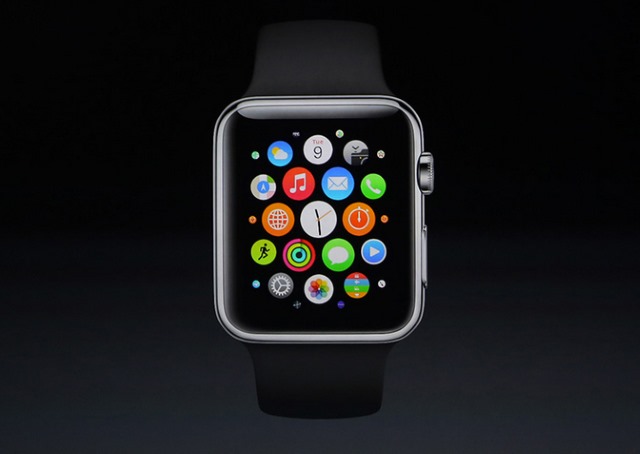
Apple announces its first wearable -- the Apple Watch
Running counter to many of the rumors circulating ahead of the Cupertino event, Apple today announces the Apple Watch, not the iWatch. Unlike the Moto 360, Apple's offering takes the squarer form adopted by many other manufacturers, but there are differences. Taking design cues from older iPhones -- think 3GS period -- the Watch was relegated to the infamous "one more thing" slot after the iPhone 6 and iPhone 6 Plus were announced. Rather than the unibody design that some had expected, the Apple Watch features six different straps, comes in two sizes (38 mm and 42 mm -- his and hers essentially), and will be available in three different finishes.
Just like the iPhone 6 and iPhone 6 Plus, the Apple Watch's display is made from sapphire crystal but there's something interesting to the right of the screen. More usually found on a traditional mechanical watch, there's a crown -- but this is not used for winding up a spring. Instead, this is a new form of input that can be used to scroll around the interface, zoom in and out, and doubles up as a home button. Despite the squared surround, the Apple Watch's UI is very round in flavor, mimicking the look of a traditional watch.
